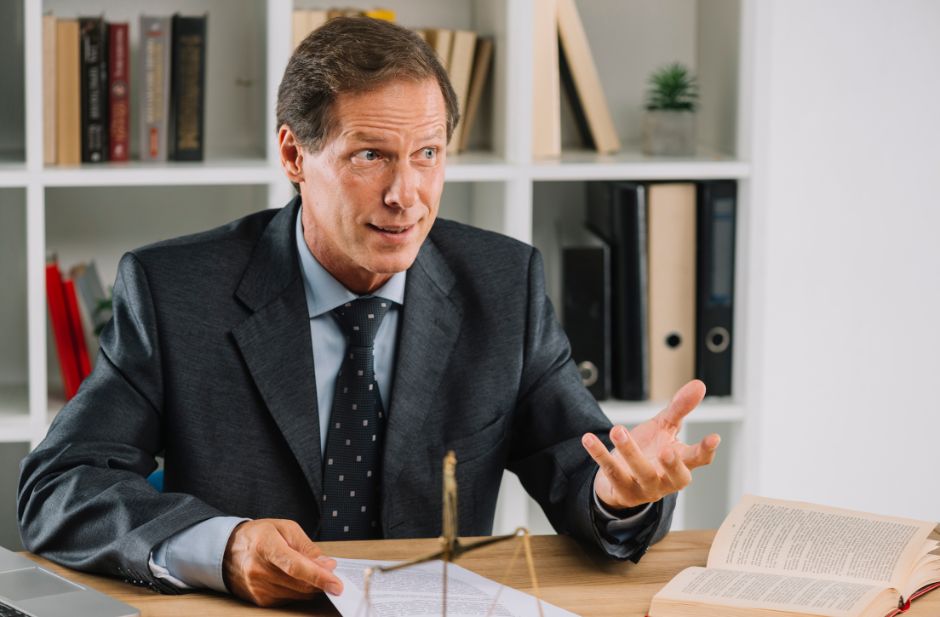Success in litigation often depends on what happens long before the trial begins. Anderson, Cummings, & Drawhorn invest extraordinary time in research and preparation to anticipate every angle a case might take.
Their focus on readiness turns potential surprises into opportunities for precision and control. Legal proceedings are complex, and you need to prepare an effective courtroom strategy to favor your client’s outcomes.
Moreover, it is not just about knowing the law but understanding how to use in under different circumstances and under high-pressure conditions.
Why Preparation Shapes The Outcome
Last-minute inspiration rarely leads to courtroom triumphs. Before anyone appears in court, every question, document, and argument has been meticulously planned over weeks or months.
Instead of reacting to the unexpected, lawyers who have prepared this way can enter the room with confidence.
Additionally, preparation guarantees that no detail is missed. Every piece of evidence, including expert testimony and witness statements, is scrutinized until it seamlessly integrates into the larger legal plan.
Lawyers can concentrate on advocacy rather than recovery once the foundation is strong.
Courtroom Strategy: Turning Complexity Into Clarity
Legal cases can easily feel overwhelming, packed with technical evidence, numerous witnesses, and conflicting versions of events. The firm’s attorneys bring order to that complexity, breaking down large volumes of information into clear, focused arguments.
This clarity not only strengthens the team’s strategy but also helps judges and juries follow the story with confidence.
Simplifying a case doesn’t mean losing depth; it means emphasizing what truly matters. When the facts are organized and presented with purpose, complexity turns into persuasion. The result is a narrative that’s grounded, credible, and genuinely compelling.
Anticipating The Opponent’s Strategy
A strong case does not stop after giving its own argument. It is also about thinking about the opponent’s move. You have to prepare for that as well.
Anderson, Cummings, & Drawhorn spend considerable time analyzing potential counterarguments, weaknesses, and alternative interpretations of the evidence.
This preparation will help you prepare responses before the challenge actually appears. When they introduce a new line of questioning, and you are already prepared, it will help you combat that difficult situation better.
Anticipation transforms potential pressure into a moment of control, demonstrating not only skill but mastery of the facts.
The Role Of Research And Expert Collaboration
Examining case files is only one aspect of preparation. To provide concrete evidence to support the claims, it often requires collaborating with medical specialists, accident reconstructionists, or financial specialists. These partnerships strengthen the case by providing factual data rather than conjecture.
The firm fortifies every aspect of the case by establishing a network of trustworthy experts. Expert opinion can make all the difference in convincing a jury, whether it is demonstrating the long-term effects of an injury or the veracity of a technical report.
Practicing For Precision
Without practice, even the most experienced lawyer can make mistakes. Significant firms hone their arguments through internal cross-examinations, witness prep sessions, and mock trials. The team can improve its delivery and anticipate courtroom dynamics by practicing under pressure.
When the trial starts, this degree of discipline pays off. The presentation feels confident overall, questions flow naturally, and objections are handled with ease. What seems natural in court is typically the product of many hours of preparation for every scenario.
Managing Stress Through Readiness
Courtroom environments can be intense, but preparation reduces that pressure. When attorneys know their material inside out, they’re less affected by tension or distractions. They can adapt quickly and remain composed even when the unexpected happens.
Readiness also builds credibility with the judge and jury. A calm, organized attorney signals confidence in the case itself. That professionalism can influence how the evidence and arguments are received.
Witness & Client Preparation
You need to prepare the client and witnesses before the trial. It is as crucial as understanding the case details. Conduct extensive briefing sessions to ensure you know what to expect from the court. Focus on the process, and that will remove their anxiety.
Take mock trials and extensive Q&A sessions to refine their testimony. Teach them how to give their statements properly and confidently. Moreover, this will prevent damaging inconsistencies and make sure that their statements support the overall narrative.
Evidence Handling
Organize and present the evidence effectively. This is one of the most important aspects of pre-tial preparation. Make a proper courtroom strategy to introduce the evidence and make sure every piece serves a purpose in making a compelling narrative.
This includes choosing the order of the exhibits, preparing visual aids, and putting down clear explanations for every complex evidence.
Managing the evidence effectively can influence how the case is presented to the jury. Make it a major part of the strategy you are making for the court.
Thorough preparation prepares the stage for the actual trial. Moreover, delivering impactful opening statements can change how people view the case. Prepare for every aspect of the case and look into every little detail.
The Long-Term Value of Thorough Preparation
Thorough preparation doesn’t just affect a single case; it defines a firm’s reputation. Clients can tell when their lawyers are attentive and proactive.
The opposing counsel quickly learns when they’re up against a team that misses nothing. That level of consistency earns respect in and out of the courtroom.
Taking the time to prepare also reveals opportunities for early settlement. When both sides recognize that one is truly ready for trial, discussions tend to move faster and more fairly. Preparation creates leverage, whether the outcome is a verdict or a well-timed resolution.
Preparation Is The Key
Courtroom success is rarely about luck; it’s about a courtroom strategy and preparation that outlasts pressure.
By mastering the details long before trial, they create space for focus, confidence, and control when it matters most. In law, as in life, readiness remains the most potent form of resilience.
















